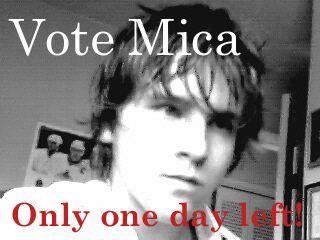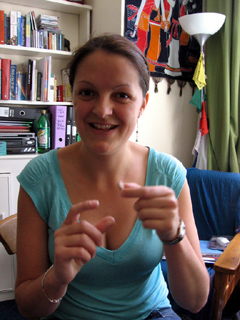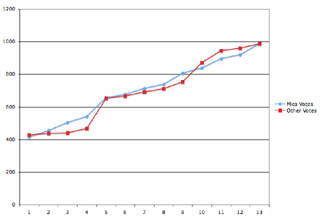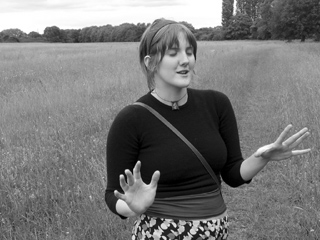Today, I came up with a nice ten mile ride primarily through eastern Oxford. Starting at the intersection of Banbury Road and Martson Ferry Road, you ride through a stretch of countryside to Old Marston. Then, carry on straight up the very obvious hill to where the John Radcliffe Hospital (not to be confused with the infirmary in Jericho) is located. Carry on straight from there until you see a turn-off to the right called Parklands Road. Past the end of that road, a path emerges. Following it provides a nice woodland downward track that varies from blacktop to dirt to really broken cement. This descent is the best part of the ride – at least, if you’re already well acquainted with the canal. At the bottom of that descent, you will find yourself outside the steel fence and razorwire-enclosed mosque that Roz and I found ourselves outside at the end of our trek through the fields east of the University Parks on Monday.
From there, take Marston Road (not to be confused with Marston Ferry Road) until you arrive at the corner of Oxford’s South Park. It has always been something of a landmark for me, as it is the first place in Oxford I ever visited, when I attended a Radiohead concert there in the summer of 2001. For good measure, I cycled once around it. On the western side, there is a nice leafy suburban area that winds up a hill and reminds me of Venebles Street, in Vancouver.
Once you’ve gone around the park (this may be a bit more than ten miles, really), head up Saint Clements Street to the Cowley Road roundabout and then across the Magdalen Bridge. Then, head up the high street as far as the County Library, turn right onto Magdalen Street, then left onto George Street. Carry on to the entrance to the path up the Oxford Canal that begins on Park End Street and then follow that path up the canal until you reach the bridge back to Jericho at Walton Well Road. Then, just head up Saint Bernard’s Road to Woodstock, and take Bevington Road back to the Banbury Road.
All told, the ride has a couple of nice hills, as well as a lot of attractive leafy bits. You’re also never terribly far out of Oxford, so the kind of bike troubles I had out near Yarnton are less of a concern – though I always carry spanners, patches, and a pump now. I am taking my bike for the free three-month tune-up from Beeline Cycles tomorrow. The pedals and handlebars haven’t come loose since they were tightened at the one month tune-up. The only concerning thing is how the pedals tend to creak and flex noticeably when striving to push uphill.





